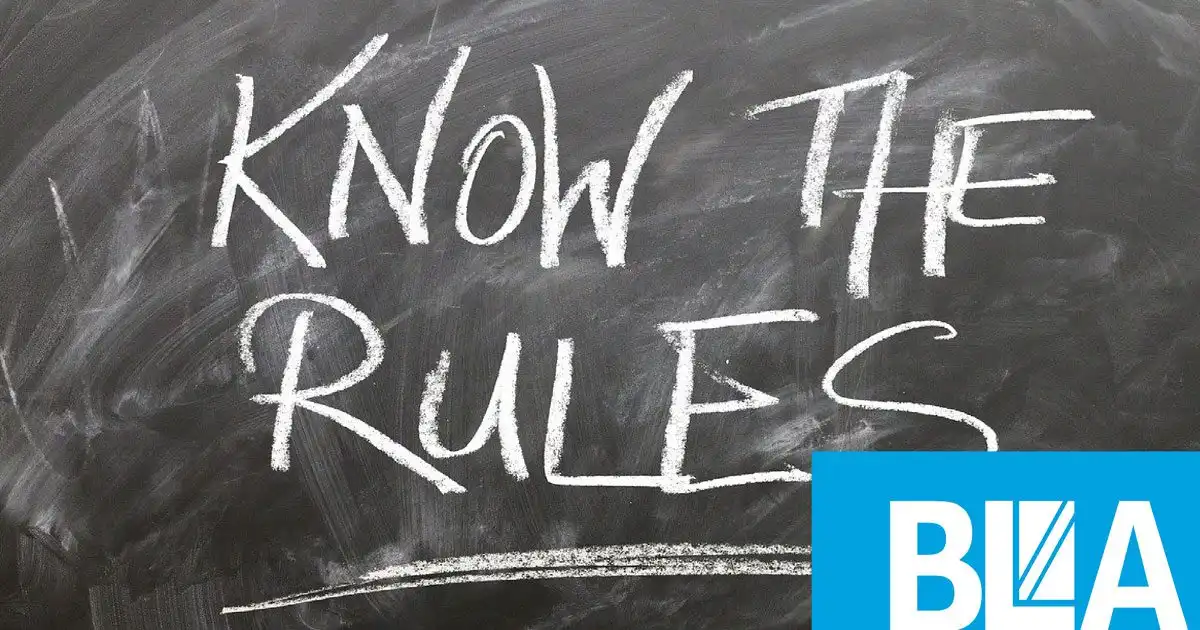What is Breathing Space?
We explore various types of breathing spaces, the legal protection for debtors, and creditor action options.
For all parties concerned, if a debt solution can be reached with the aid of a debt advice provider, this will be a much and cheaper route for most landlords.
Protection Standard Breathing Space
The standard breathing space can affect some landlords, especially if the landlord is seeking to issue a claim for possession under the section 8 notice.
The standard breathing space means:
- Debts cannot be called on once a person is in the Debt Respite Period. Which includes reminders, text calls or emails.
- This applies to joint tenants if any.
- Section 8 notice cannot be served on rent arrears grounds 8, 10 or 11. However, landlords can serve section 8 on other grounds under section 8.
- A Section 21 Notice can still be issued to the tenant.
Mental health crisis Breathing Space
Due to COVID-19, job loss and lockdown are just 2 of many reasons why the Mental Health Crisis has increased.
It is right those with mental health problems have some form of protection and access to a debt advisor.
While a debt advice provider helps the debtor, the debtor in the interim has some legal protection from creditors.
The mental health crisis breathing space aims to afford the debtor or the debt adviser time to deal with the debtor’s case.
For landlords, the mental health crises breathing space means:
- Tenants cannot be chased once the tenant is in the Debt Respite Period. Which means no reminders, text calls or emails.
- This applies if there are joint tenants too.
- Tenants cannot be chased until 30 days after the period has ended if there was a mental health issue. Exactly how we find out when a problem has officially ended is not clear.
- Therefore, Section 8 notice cannot be issued on rent arrears grounds 8,10 or 11. However, the landlord can use other grounds under the section 8 Notice. Section 8 Notice has in total 17 grounds.
- A Section 21 Notice can be used.
General rules from either type of breathing space above:
A creditor is prevented in law from taking the following steps:
(a) Demand a debtor to pay interest that accrues on a moratorium debt during a moratorium period.
(b) Demand a debtor to pay fees, penalties or charges about a moratorium debt that accrues during a moratorium period.
(c) Take enforcement action for a moratorium debt whether the right to take such action arises under a contract, by an enactment or otherwise.
(d) To instruct an agent to take any of the actions mentioned in sub-paragraphs (a) to (c).
Mental Health crisis treatment
The ‘mental health crisis’ breathing space gives more vital protection to tenants. It is only available to those receiving mental health crisis treatment.
This breathing space lasts throughout the tenant’s mental health crisis treatment, plus an added 30 days no matter how long the crisis treatment lasts.
A mental health crisis breathing space is only available to a client receiving recognised mental health crisis treatment.
The Government committed to developing an alternative route to access the protections for people receiving mental health crisis treatment to not have to access debt advice first.
If an Approved Mental Health Professional (AMHP) certifies that a tenant receives mental health crisis treatment. In that case, a debt adviser can use the AMHP’s evidence to start a mental health crisis breathing space.
A moratorium debt is not a qualifying debt.
The debtor has enough funds to discharge or liquidate their debt as it falls due.”
There may be many tenants who cannot pay the rent arrears at the moment. However, they will be able to pay once the COVID-19 pandemic ends.
They may ask for a Breathing Space if they cannot afford to pay at the time. The landlords at least are aware of what is going on rather than being ignored.
Tenants have a legal obligation, under this legislation, to inform the person administering their respite period if their “circumstance or financial position changes”.
The tenant cannot take on further debt while in this moratorium, nor can they fail to pay their rent when it is due.
Some tenants are suffering from mental health issues now. Some can deal with debts and may only need some mild medication or counselling.
However, for some tenants, the isolation, lack of mental challenges, social activities, and confinement may have a severe effect. These tenants will need more help than others.
These tenants may legitimately need respite from the stress of debts.
The moratorium on debts, including rent arrears, will remain active 30 days after medical treatment or support ends.
The tenant is compelled to pay the rent, which falls due once the Breathing Space moratorium begins. If the tenant does not pay during that time, you can request the Debt Advisor to “review” the debt.
This needs to be done in writing to the Debt Advisor who informed you of the moratorium. Non-payment of rent during that period gives you grounds under:
“There has been some material irregularity about any of the specified regulations 17(2).” The Debt Advisor has 35 days to reply to this request.”
Remember that this legislation is geared to protect tenants who have lost their ability to manage finances. It is intended to help them take a step back for a while and then recover from the situation.
FAQ
What debts can be protected within a Breathing Space?
The qualifying debts to which Breathing Spaces apply typically include money that is due under a Court judgment, utility bills, and rent arrears. The Breathing Space only applies to debts due at that time.
If further debts become due, they must be paid, such as rent falling due during the moratorium period.
How to apply for a Standard breathing space moratorium
To apply for a standard breathing space moratorium, a tenant must seek debt advice from a debt adviser.
The debt adviser will review an application and assess if the debtor is unable, or is unlikely to be able, to repay some or all their debt.
If the application is successful, the tenant will benefit from legal protections from creditors for up to 60 days. However, the debt adviser must review the case between days 26 and 35.
Once the 60 days have expired, a further application cannot be made for another 12 months.
How does the Mental health crisis breathing space moratorium work?
To apply for a mental health crisis breathing space, the requirement is as per the standard breathing space moratorium.
The tenant debtor must also be receiving mental health crisis treatment.
A mental health crisis breathing space moratorium will end either 30 days after the tenant debtor’s mental health crisis treatment ends. Alternatively, 30 days after the date, a debt adviser had no response after asking for confirmation about a debtor’s ongoing mental health crisis treatment.
Breathing space register
The landlord will be notified if a tenant has been granted a standard or mental health crisis breathing space moratorium.
The landlord can then access the breathing space register, which should confirm details about the debtor. The information on the register should reveal how much is owed to creditors and when the moratorium starts and ends.
However, they will not be able to review information about any other debts the tenant debtor may have.
The threshold needed to qualify for a mental health crisis breathing space moratorium is high. Because of the COVID-19 pandemic, many residential tenants may be eligible for a standard breathing space moratorium.
This is good news for some tenants who may need more time to settle their debts. This inevitable is likely to result in a delay to any eviction process needed to obtain possession.
Landlords have already been affected by more extended notice periods before obtaining possession of their property, a stay on possession proceedings and a ban on evictions.
It is yet to be seen whether this added measure will provide sufficient protection for tenants or simply result in a further hurdle for landlords.
How does breathing space affect the rent arrears?
If their tenants are awarded breathing space respite from their rent arrears.
This scheme means that landlords facing mortgage arrears on their rental properties will need to find another source of income to service the mortgage.
What happens if a tenant stops paying rent because of the breathing space?
The debt advisor can cancel a breathing space if they believe the debtor is not following their obligations.
Debt Respite Scheme: what happens during a tenant’s breathing space?
Landlords will receive an electronic or postal notification if their tenant has been granted breathing space.
This applies to breathing spaces for any debt – not just debts associated with the landlord, such as rent arrears.
This notification confirms when the grace period officially begins so landlords know when they can retake action.
The debt advisor will contact the tenant for a midpoint review. At this time, the debt advisor can cancel the breathing space period if they are not satisfied the debtor is using the time correctly.
The breathing space should be used to arrange payment plans to combine their debts into an affordable monthly payment.
The debt advisor is the single point of contact for all parties involved throughout the process. If the landlord has any questions, this is who to ask.
Landlords cannot contact the tenant during the breathing space period unless it is about a separate matter, like maintenance or safety checks.
How will the breathing space scheme be triggered?
The breathing space scheme will be triggered when:
The individual accesses FCA-regulated debt advice.
The debt advisor considers that there is a realistic chance of the individual entering a formal debt solution and that the individual needs time to do this; and
The individual has not been in breathing space in the previous 12 months.
Creditors will not be able to formally object. The Treasury has proposed an alternative access mechanism for debtors receiving NHS mental health crisis treatment.
The tenant must seek debt counselling, as debt counselling may help the tenant and the landlord avoid litigation.
Contact from creditors, in this case, you, the landlord, to the tenant at an early stage with the aim for the tenant to understand the breathing space debt process.
How will creditors be informed?
Creditors will be notified electronically of an individual’s entrance to or exit from breathing space. These notifications will come from a portal to be run by the Insolvency Service.
There will also be a private register. Creditors will be able to access details of individuals who owe them money but not details of other creditors of those individuals or of other debtors in the scheme.
The debt advice agency will gather creditor details through interviews with the debtor and credit checks.
The Government has said that the original creditor will notify such third parties when an individual enters or leaves breathing space where the debt has been passed to a debt collection or enforcement agency.
Debt acquirers and their loan servicers must also ensure they receive relevant notices post-acquisition.
In practice, it is expected that the individual will provide the debt advice agency with the most recent correspondence received about the loan, which is likely, in many cases, to be from the current loan servicer.
There will not be a publicly searchable register of individuals in breathing space.
What debts are included in the scheme?
The intention is to include as many debts as possible in the scheme. These will include financial services debt, household bill arrears, and arrears owed to the Government.
The business debts of sole traders operating below the VAT threshold will also be included.
All contractual and default interest fees will be prevented from accruing on arrears owed on these debts while the individual is in breathing space.
Creditors cannot retrospectively charge interest, fees, or charges on these arrears even if the individual leaves breathing space without entering a debt solution.
Almost all creditor collections, recovery, and enforcement actions will also be paused during breathing space. All contact with the debtor about repayment during this period.
However, the Government proposals distinguish between arrears on debts included in the scheme and “ongoing liabilities” such as mortgage payments, hire purchase debts and rent.
Breathing space is not intended to be a paid holiday. Suppose an individual falls into arrears about an ongoing liability during breathing space.
In that case, they will not be protected from the charging of interest, fees, and charges on those arrears.
They will not be protected from enforcement action. The debt advice agency will also have the discretion to remove any such individual from breathing space.
Author: Peter Ross Date: 1st of January 2024
The British Landlords Association is a free national landlords association for UK commercial & residential landlords, join us now for free!
Government extends moratorium on commercial property evictions to March 2022
Best Landlords Association to join in 2021?





